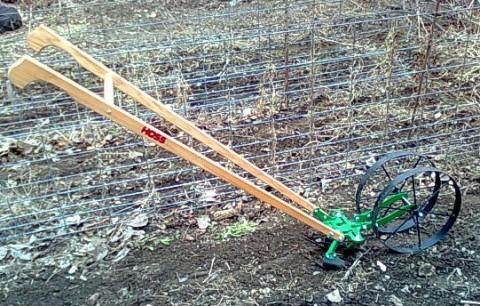
 2
2





 1
1




 1
1




modify our attitudes and ways of doing things so that predictability isn't such a high priority.

 3
3




 2
2




 1
1




 1
1




Standing on the shoulders of giants. Giants with dirt under their nails




Joseph Lofthouse wrote:
Perhaps we will find ways to modify our attitudes and ways of doing things so that predictability isn't such a high priority.
Paul Wheaton wrote:
...it boils down to: if you use conventional systems, with petroleum, you can have what you want and when you want it. But not with permaculture.
“The most important decision we make is whether we believe we live in a friendly or hostile universe.”― Albert Einstein








Standing on the shoulders of giants. Giants with dirt under their nails




paul wheaton wrote:A big part of permaculture is about replacing petroleum with people.
...
If we are going to replace most of the petroleum in agriculture with people, we need to find the ways that people can be almost as predictable a petroleum.







 1
1


















Standing on the shoulders of giants. Giants with dirt under their nails

 1
1




 1
1




Living in Anjou , France,
For the many not for the few
http://www.permies.com/t/80/31583/projects/Permie-Pennies-France#330873

 3
3




David Livingston wrote:Joseph has built up obligations a whole net work of them that acts like money . Bit like a " gert "
 3
3








Kyle Neath wrote:
...
- Gasoline is the most available energy form known to man. You can get it almost everywhere, and anyone who's used a gas chainsaw and a battery-powered chainsaw knows the difference in energy.
- Gasoline is tremendously portable — the same gallon of gas that powers a truck can power a log-splitter, power-washer, well-driller, chainsaw, or snowmobile.
...
I believe the question of how to replace petroleum with ________ is going to be the great challenge of my generation. I am curious to see if we end in an energy-rich world (Elon Musk's future) or an energy-lean world (Paul's future).

 1
1




Kyle Neath wrote:To me the best answer of how to replace people with petroleum is to get more people growing food and to reduce the distance between ourselves and our food.




When I've done the math, it takes much less fuel per pound to bring food to my valley from 800 miles away than it does for me to take it from my farm to the closest town.
Standing on the shoulders of giants. Giants with dirt under their nails
 1
1





 3
3




Maureen Atsali
Wrong Way Farm - Kenya




Where I live petroleum power isn't an option.
Standing on the shoulders of giants. Giants with dirt under their nails
 1
1








Community Building 2.0: ask me about drL, the rotational-mob-grazing format for human interactions.





The OSU study suggested one of the main differences between Amish and modern farming is horsepower. A conventional farmer can expect to spend $94,200 on a 160-horsepower tractor and another $30,300 for a 75-horsepower tractor. An Amish farmer will spend about $5,500 on five draft horses.
The report mentioned that an Amish farmer spends about $20,000 equipping a 60-acre farm, or less than a modern farmer would pay for a new pickup truck. For the Amish, costs remain low because of their reliance on old machinery that is often bought used.
A study from the UNDP (United Nations Development Programme) showed that as many as 65% of families in the city of Moscow engaged in urban gardening in 1991 compared to 20% in 1970. In the mid-90s, this urban gardening provided the majority of potatoes, fruit and vegetables eaten by people living in cities. This production represented between 20 and 30% of the total value of food production in Russia
Tradition is not the worship of ashes, but the preservation of fire.

|
Seriously Rick? Seriously? You might as well just read this tiny ad:
Freaky Cheap Heat - 2 hour movie - HD streaming
https://permies.com/wiki/238453/Freaky-Cheap-Heat-hour-movie
|








